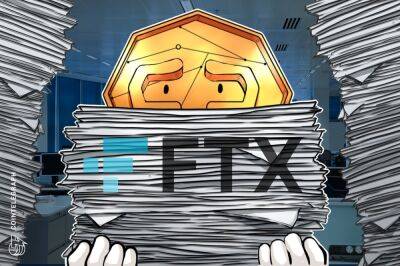Beware the dangers of crypto regulation
The collapse of FTX and the charges against Sam Bankman-Fried have brought many renewed calls for crypto regulation, from both commentators and legislators. That is precisely why this is a time for caution. No matter how strong the temptation, we should not overregulate.
Begin with two central facts. First, there are numerous ways for small and large investors to lose their money, including by investing in risky equities. Regulating crypto won’t end that danger. Second, despite being one of the largest financial frauds in history, FTX has not created systemic financial risk, which should be the main concern of regulators. And market forces already have made the risk from crypto much smaller: At the peak of crypto values in late 2021, crypto assets had a total value of about $2 trillion; as of this writing, that figure is about $845 billion.
Still, that second factor — the possibility of crypto risk and the fear that it will become increasingly intertwined with the mainstream banking system — keeps regulators up at night. At this point, however, it is highly unlikely that many banks or commercial lenders are seeking more integration with potentially leveraged crypto exchanges.
Crypto regulation is not easy to do well. If crypto institutions are treated like regular depository institutions, requiring heavy layers of capital and lots of legal staffing, crypto innovation is likely to dwindle. Such innovation has been more the province of eccentric geniuses than of mainstream regulated institutions. It is hard to imagine Satoshi Nakamoto or Vitalik Buterin at Goldman Sachs.
And what exactly should be the goal of crypto regulation? To make stablecoins truly stable in nominal value? Is that even possible? Or to encourage market
Read more on moneycontrol.com























